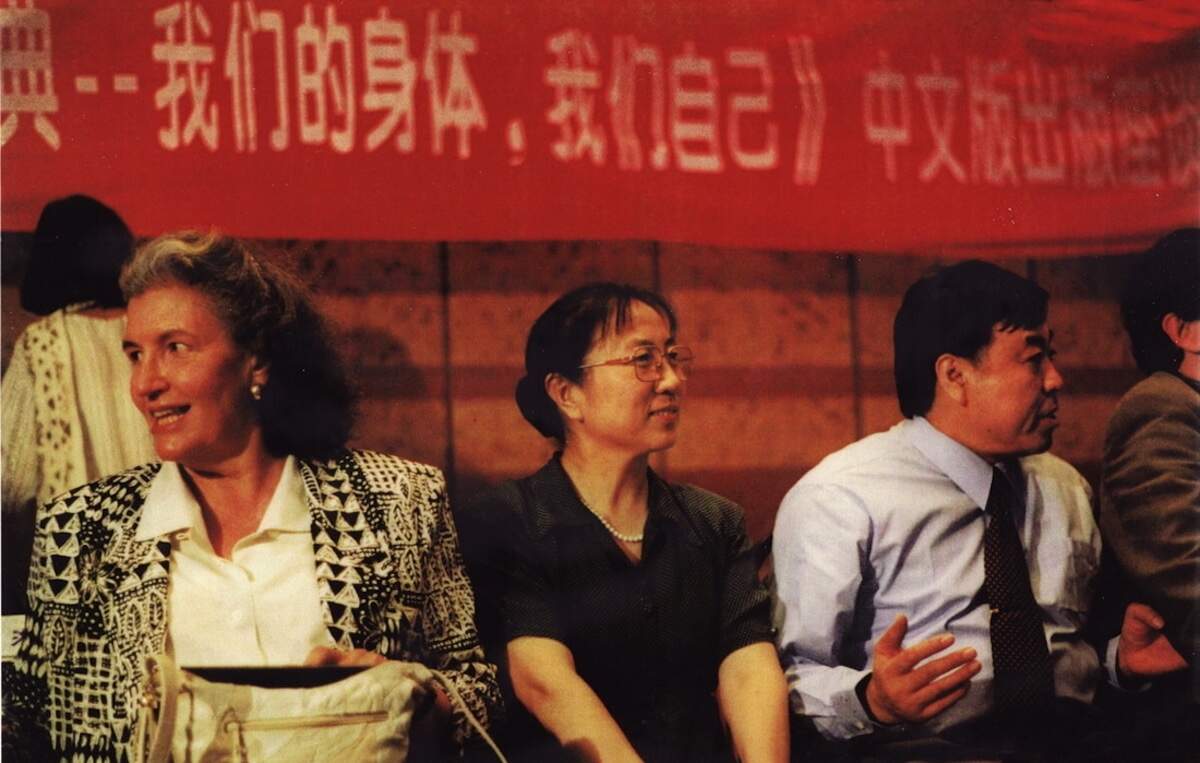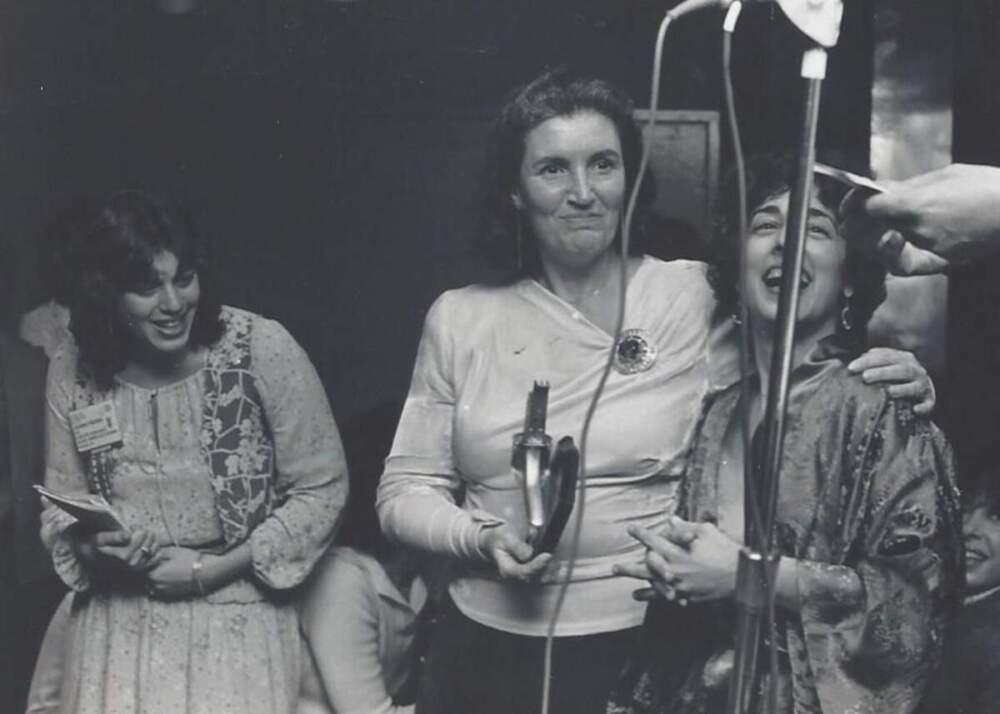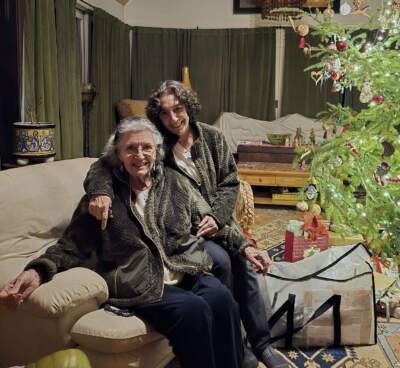Advertisement
Norma Meras Swenson, co-founder of Our Bodies Ourselves, dies at 93

Norma Meras Swenson's own pregnancy and birthing experience set her on the path to become a global advocate for women’s health, asserting that women, not doctors, were the experts on their bodies.
When Swenson gave birth to her only child, Sarah, in 1958, it was rare for women to have a natural birth, let alone be fully conscious during labor. Instead, women were often put into a “twilight sleep” by a cocktail of sedatives.
Swenson sought a different journey. When it was time, residents in the labor and delivery ward gathered around Swenson’s bed. Most hadn’t seen a natural birth before.
“There she was turning down drugs … fully participating in her own birth experience, awake and aware,” Sarah said, whereas the other women in the ward were barely awake. “Total non-participants in arguably the most important life-changing experience a woman could have. And she said to herself, ‘Why is this? Why are women being deprived of this life-changing experience?’ ”
Swenson died on May 11 at the age of 93. She was a co-author and editor of most editions of “Our Bodies, Ourselves” — the landmark book on women's health.
She was a leader and internationally recognized expert in reproductive and sexual health and rights, and in maternal and child health. She consulted internationally for the World Health Organization and major foundations.
“I will treasure my decades of close friendship and collaboration with Norma,” said Judy Norsigian, co-founder of Our Bodies Ourselves, in an email.
“Our trip to 10 European countries in 1977 was among many highlights, when I saw at close range how she would support and inspire so many women just beginning their journeys as advocates and activists in the women’s health movements that were popping up everywhere," she said. "Her cogent calls to action — using both writing and the spoken word — will remain a treasured legacy for years to come.”

Swenson's daughter Sarah plans to preserve this legacy. There are decades of tapes, papers. As the oldest founder of Our Bodies Ourselves, Norma was committed to documenting the nonprofit's history.
“She was fiercely devoted to making a change in women's lives,” Sarah said. “Until the end, she was still asking the question: why don't women have bodily autonomy [in the] 21st century, year 2025? We still don't have control. Why is that?’ She kept asking.”
Swenson worked with many others in nations around the world to define and create the women’s health movement. She created and taught a course on global women’s health at the Harvard School of Public Health. She was a past president of both the International Childbirth Education Association and the Boston Association for Childbirth Education.
” She was a force of nature, and she was brilliant. She was charismatic. She could talk incredibly persuasively, and she just did not give up,” said Amy Agigian, executive director of Our Bodies Ourselves and a Suffolk University professor. “She helped change laws, she helped change policies.”
Advertisement
Swenson remained engaged and made people feel important. Most recently, she worked with a women's group in Brazil that created a translated adaptation of “Our Bodies, Ourselves.” In the celebration for the book, all the women from Brazil raved about how supported they felt by Swenson and how central she was to that whole process.
Byllye Avery, founder of Black Women’s Health Imperative, shared excerpts of her speech for Swenson’s funeral.
“Norma was the first person I told that I wanted to do a report on Black women's health,” she wrote. “I had no idea where that idea would lead, but I am sure Norma knew. She listened deeply, without judgment, and encouraged me with quiet confidence.”
“Norma taught us to trust ourselves, to trust our voices, and to speak our truth,” Avery wrote. “She believed in justice, in the power of women, especially those whose voices had been ignored for too long, and in building something for all of us.”

Nirvana Gonzalez Rosa of Taller Salud in Puerto Rico said Swenson’s motivation, direction, and support was key to their development and evolution. At nearly 50, Taller Salud is among the oldest feminist organizations still active on the island.
“Norma was a great teacher, in solidarity and with respect for diversity,” Gonzalez Rosa wrote in an email. “Without a doubt she marked our feminist history both in the United States and our Caribbean land … thank you my beloved witch, your wisdom will always be within us.”
An online memorial page for Swenson contains note after note paying homage to her work. Every day, there are new kind words posted from around the world.
“We remember Norma as a woman with oceans of caring, giving and generosity. She was a storyteller and a wonderful woman who listened,” read one message.
And another: “Sarah — I remember when your mom came to Newton South High to discuss 'Our Bodies, Ourselves!' I freaked out my older mom by locking myself in our bathroom looking at my private parts with a mirror (ha ha)! This legacy kept me sane and proud.”
A reflection from midwife Ina May Gaskin called Norma a “powerhouse.”

Sarah remembers her mother taking her out of school to attend talks and conferences. She watched natural childbirth videos and learned from her every day of her life. They were both dancers, and her mother taught modern dance when she was a child. Sarah stuck with it, becoming a well-known choreographer.
Among the lessons Swenson left with her daughter: Take everything seriously, be as open as you can with everyone, try to remember to say thank you.
She lived as she loved. She was a person who once made a bird sanctuary on her balcony, who cared deeply about plants and trees. She found joy in the ocean, in making new friends, and eating seafood.
Swenson died as she lived, committed to her values. Her daughter, Sarah, by her side every step of the way. Swenson wrote in her will that she would receive no medication. She wanted to experience every moment she had left, as present as possible.
Remembrances to Norma Meras Swenson can be submitted here. A larger memorial event is being planned for next year.
